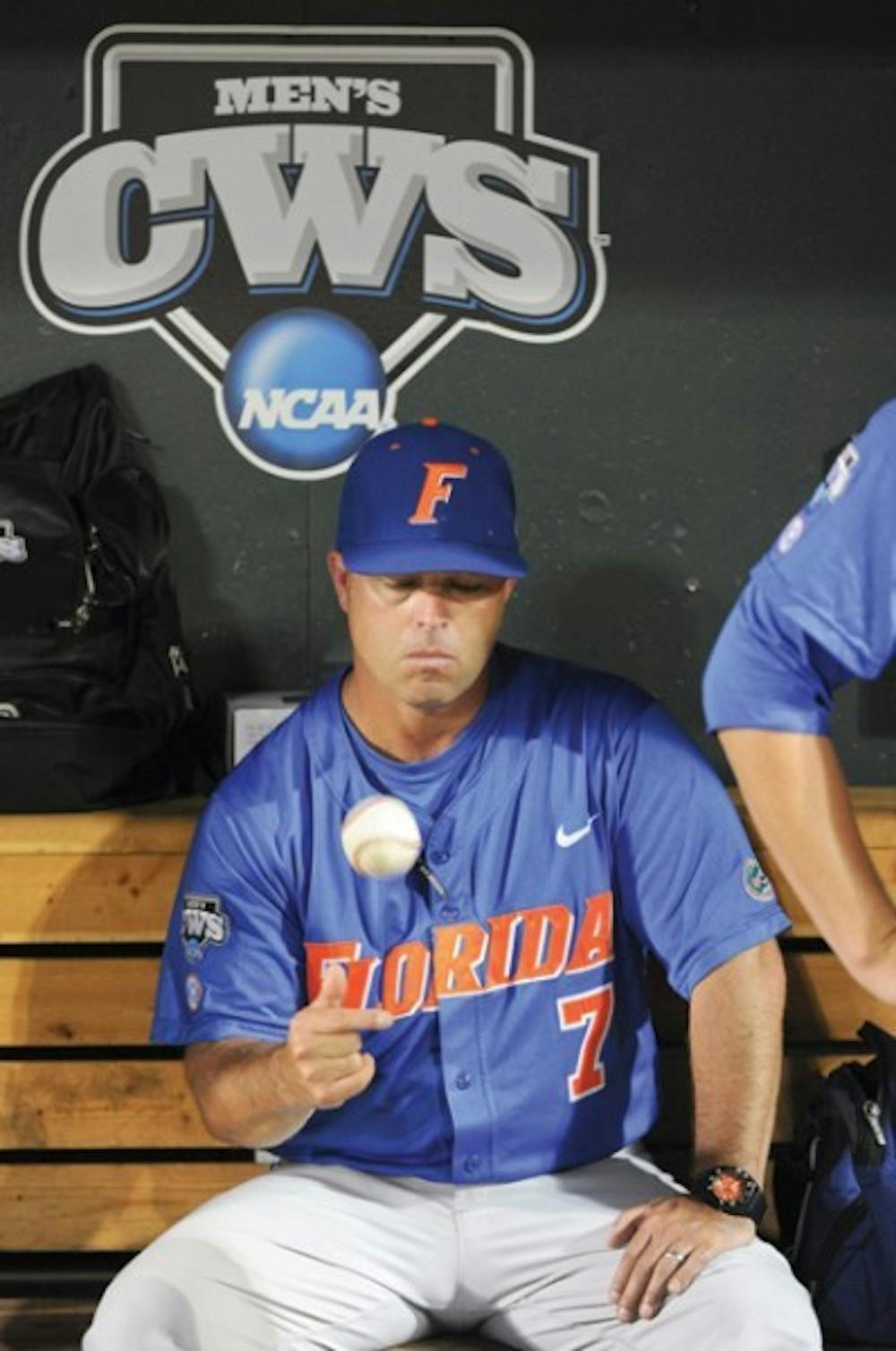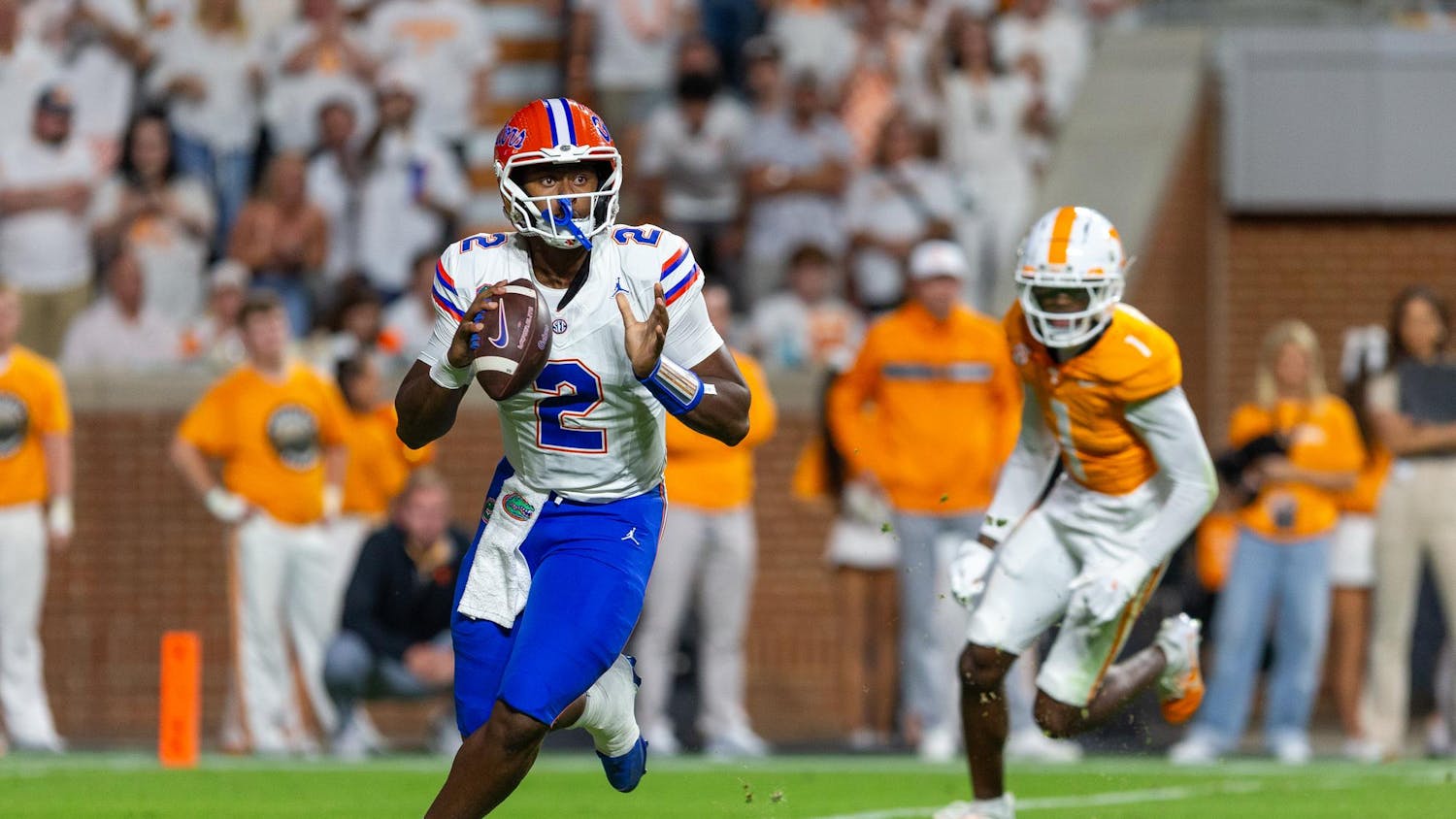So you probably think Florida’s NCAA baseball regional is a bit difficult for a two-seed, and if that’s the case, you’re most certainly right.
Adjusted RPI is one of the many factors the NCAA selection committee takes into account when it puts teams in the field of 64, but it is an unbiased and weighted factor.
For instance, instead of 1.0 for a road victory, a road win will be valued at 1.3. A home win is 0.7 instead of 1.0, and a neutral site win is 1.0. A home loss counts 1.3 against, and a road loss counts 0.7 against in the adjusted RPI. This adjustment system replaces the prior one that gave teams bonuses for beating higher-ranked teams, and it went into effect in 2013.
The committee is often criticized for relying too heavily on RPI, and the weighting was recently altered to its current format to appease northern schools that play many of their early-season games on the road because of poor weather.
This weekend, the Gators will host College of Charleston, North Carolina and Long Beach State in the Gainesville regional, respectively the adjusted RPI rankings of those teams are 53, 41 and 29 giving Florida’s regional an average adjusted RPI ranking of 40.7.
That gives Florida the hardest regional of any of the national seeds — barely edging out the LSU-hosted Baton Rouge regional’s average adjusted RPI of 42.7 — even though the Gators are the No. 2 national seed and the Tigers hold the No. 8 seed. Besides LSU, Florida and third-seeded Virginia (average regional RPI: 57.3), none of the other national seeds are hosting a regional in which its guests have an average adjusted RPI of less than 82.3.
UF only hosts one top-40 adjusted RPI team while Louisiana-Lafayette, TCU and Virginia each host two, but Florida does have a North Carolina team that checks in at No. 41 in the RPI rankings, and College of Charleston, who is the fourth seed in the region but ranked No. 52 in adjusted RPI.
Florida’s four-seed is the strongest by a long shot out of any of the eight national seeds, and that’s what boosts its regional’s average adjusted RPI. Other than LSU’s four-seed Southeastern Louisiana (No. 73) no other national seed has a four-seed in its region better than 111th in the adjusted RPI rankings.
Part of the issue the selection committee has is pairing teams within a reasonable proximity of the national seeds. That explains why No. 4 seed Indiana is hosting Indiana State and Youngstown State among its three guests; those teams have respective RPI rankings of 22 and 270. But Florida State, UF’s blood-rival just a two-hour drive northwest is hosting a regional with an average adjusted RPI of 82.3 and only one school in the adjusted RPI top-50.
For comparative purposes, alligatorSports went back to the year 2000 and looked up the adjusted RPI of each team in every two-seed’s regional in the NCAA baseball tournament.
Besides 2001 and 2000, all RPI rankings were representative of the time that the NCAA tournament selections were made in that particular year. The 2001 and 2000 RPI data is from after those years’ college world series were made.
Florida is the No. 2 seed with the hardest regional in average adjusted RPI by a wide margin over those years with the exception of Vanderbilt’s 2013 Nashville regional (49.3).
In five different years, the regional guest average adjusted RPI was in the 50s, 2011’s Gainesville regional (56.3), 2009’s Fullerton regional (55.3), 2005’s Atlanta regional (59.7), 2004’s Columbia regional (53.3) and 2002’s Clemson regional (59.3).
Every other two-seed had an average adjusted RPI of 70 or more among its participants.
Despite its competition, Florida is expected to advance out of the regional stage, they wouldn’t be so highly seeded if they weren’t, but the numbers show its road is tougher to hoe than most.
Coach Kevin O’Sullivan told reporters Monday he’s very excited with where his team is after a run to the SEC tournament finals last weekend.
He was most impressed by the way his team responded to being tired, and not having much to play for Sunday, calling UF’s play “crisp” in the loss to LSU.
“Right now the only thing I’m worried about is our regional to be honest with you,” O’Sullivan said. “There’s no easy road (to the College World Series). You’ve gotta play good teams.”
Even if there was an easy road, thanks to its regional draw, Florida certainly wouldn’t be taking it.
Follow Richard Johnson on Twitter @RagjUF
Florida coach Kevin O'Sullivan tosses a ball while sitting in the dugout after South Carolina beat Florida 5-2 in Game 2 of the NCAA baseball College World Series best-of-three finals, to win the championship, in Omaha, Neb., Tuesday, June 28, 2011.






